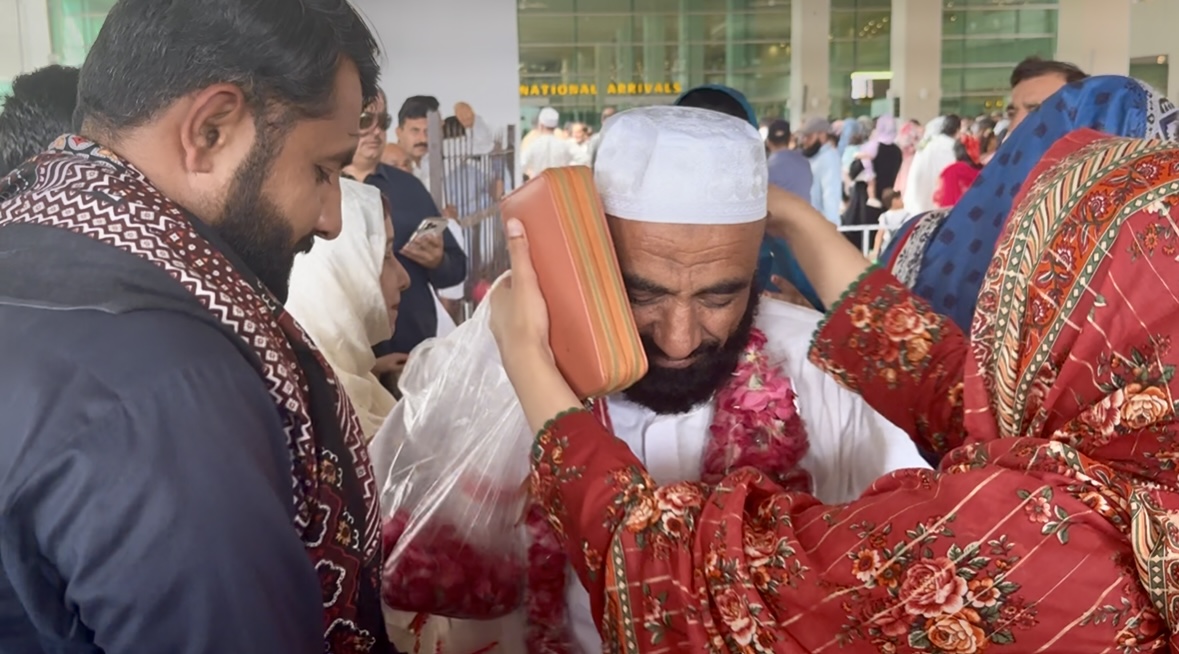LAHORE: On a warm April morning, over a dozen microbiologists clock in to begin their eight-hour shift at the Public Health Reference Laboratory (PHRL) in Lahore.
Dressed in hazmat suits, the men and women move between three adjacent rooms, extracting and testing a colorless liquid.
The staff of more than 40 work around the clock in different shifts.
There are no day offs, and breaks are short.
“We even work on Sundays,” said Dr. Asim Altaf, secretary at the Punjab health care department, who supervises the lab, “That is how it is during war.”
The laboratory is one of the largest testing facilities for coronavirus in Pakistan, and the largest in Punjab. On most days, it can diagnose up to 2,000 test samples. Of those tests, 1,100 are diagnosed on an automatic machine. In the rest, the genetic material has to be extracted manually.
In this painstakingly long process, the main obstacle they face is human error on the stage when samples are collected.
Once a health care worker takes a swab from suspected COVID-19 patients, he or she must follow strict guidelines before dispatching it. Each swab, from the nose or throat, must be locked in a sealed tube, barcoded, zipped in a plastic bag and finally stored in a cool box for transportation.
However, some samples the lab receives are incorrectly barcoded, wrapped in plastic tape, or are not the right temperature to be tested, which leads to incorrect results.
“This really comprises the quality of the test conducted,” explains Dr. Andleeb Hanif, the head microbiologist at the PHRL and the focal person for laboratories in Punjab, “If a leaked tube is thrown in a plastic bag with others, and not kept separate, then it will contaminate the rest of the samples.”
This means that a sample of even one infected person can make samples from healthy people turn up as COVID-19 positive.
“The percentage of such errors is very high at the moment,” Dr. Altaf told Arab News. Recently, he received a batch of 800 samples from Bahawalpur in Punjab, of which only 261 could be processed.
“The labels were wrong, the samples had leaked, the tags had rubbed off. This affects our testing capacity and accuracy.”
But Dr. Altaf’s department is rushing to fill the gap, so Punjab can increase its testing capacity from 4,200 to 5,000 in the coming days. The staff carrying out the tests are being retrained and a new system has been rolled out, in which the name, age and city of each patient will be barcoded.
Still, he admits, much will depend on whether those shipping the samples follow guidelines.
A single test for the deadly virus costs the state about Rs2,800 ($18), according to the officials at the health department. One test kit is for between 24 and 50 people. Sometimes samples need to be taken twice, if there are doubts about accuracy.
There are kits that can fail to detect the virus if its quantity is little, explains Dr. Hanif, “China itself states that the kits it manufactures have a margin of error of 25 percent. So sometimes, we have to reverify.”
Apart from kits provided by the federal government to Punjab, which were bought from China, the Public Health Reference Laboratory has also procured kits from Turkey and the United Kingdom. The World Health Organization (WHO) has sent a separate consignment as well.
Pakistan has recorded over 12,500 COVID-19 cases and more than 265 related deaths. At least 42 percent of those who tested positive were in Punjab, the country’s most populous province. Local transmission stands at 79 percent, according to data from the National Command and Operation Center, which runs the country’s central database to track the virus.
According to Dr. Altaf, no “super spreaders,” or individuals with mild symptoms who end up infecting a large population, have so far been detected in Punjab.
“We are getting more samples from quarantine centers in the province, because there is a lot of circulation of the virus over there. Those people are exposed to each other and potentially one person can spread the virus to 100,” he said.
In a recent press briefing, Punjab chief minister Usman Buzdar said the province wants to significantly increase its testing capacity, aiming to take it up to 10,000 tests a day. Medical staff at the Public Health Reference Laboratory say it will increase pressure on them, until more labs open up. There are currently 40 testing facilities in the country, with 16 in Punjab alone.
What worries them more however, is not additional workload but the Punjab government’s decision to ease a three-week lockdown by reopening several industrial sectors and allowing congregational prayers at mosques.
“Of course, this will impact us,” said Dr. Hanif, “Even before the lockdown was eased, we were getting a lot of samples to test in a day.” She added that as local transmission is increasing in the country, and the province, “You’ll have less chances of knowing who is unknowingly carrying the virus. If you open the lockdown, you will have a lot of unknowns.”


















